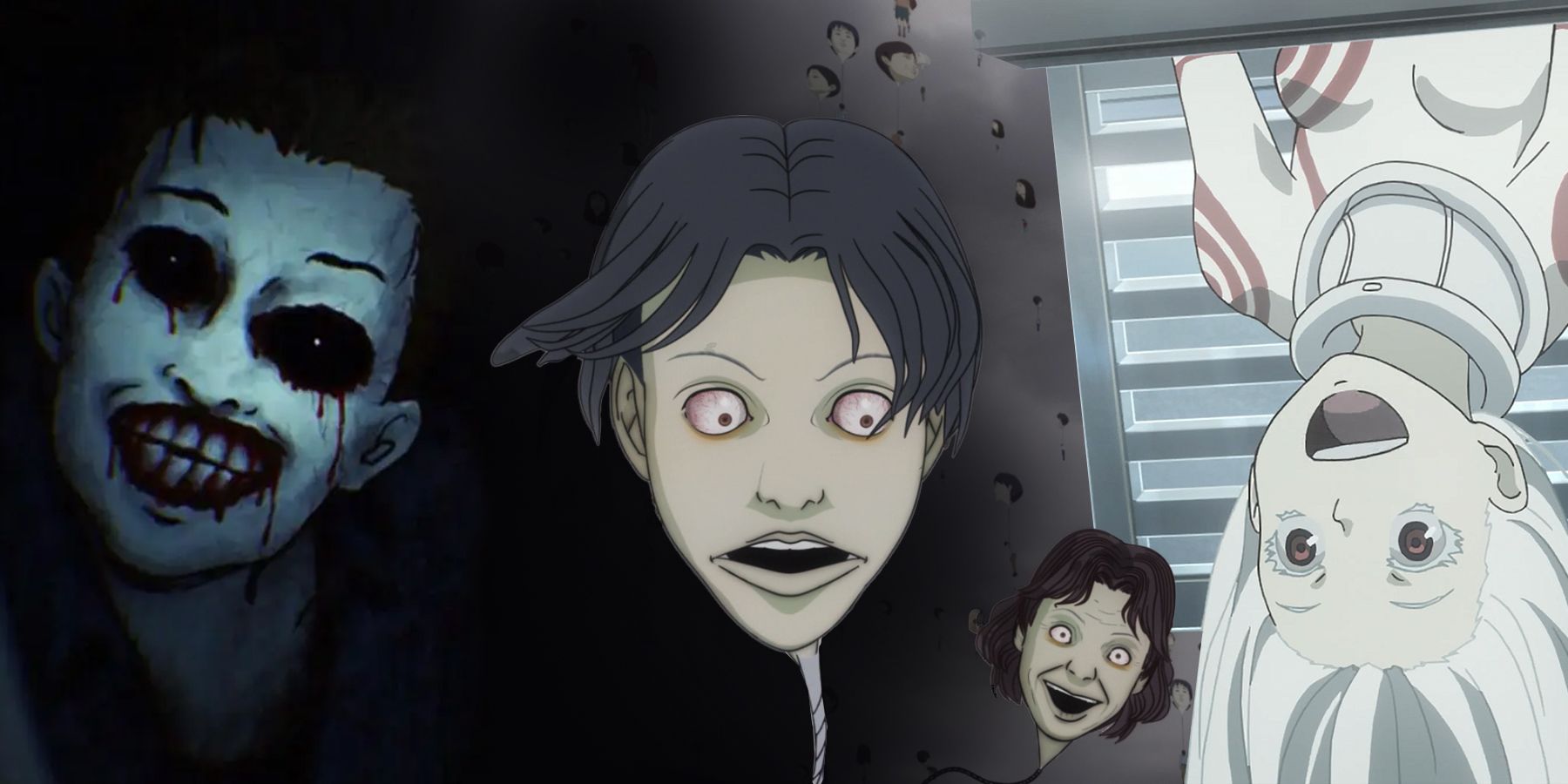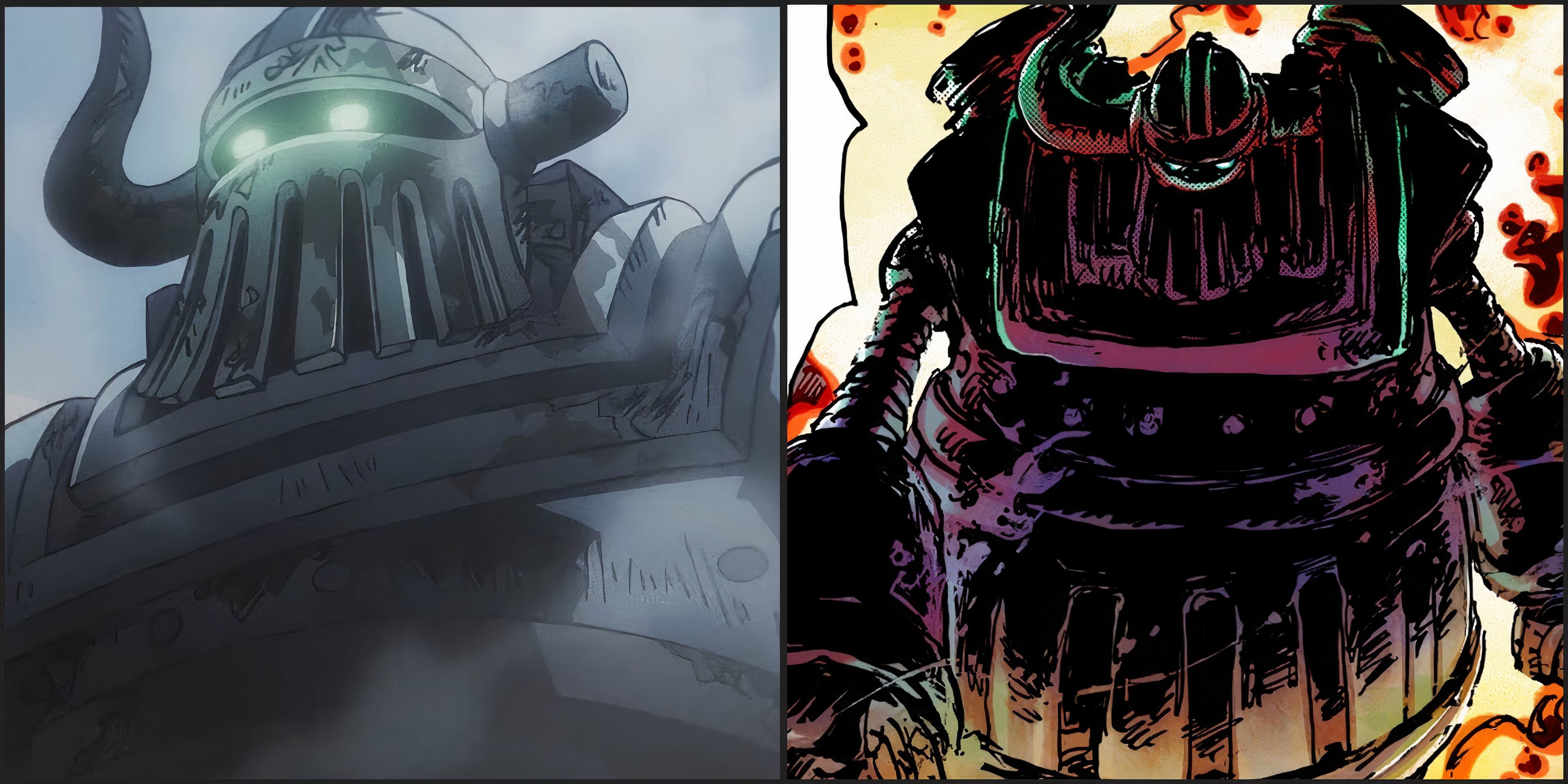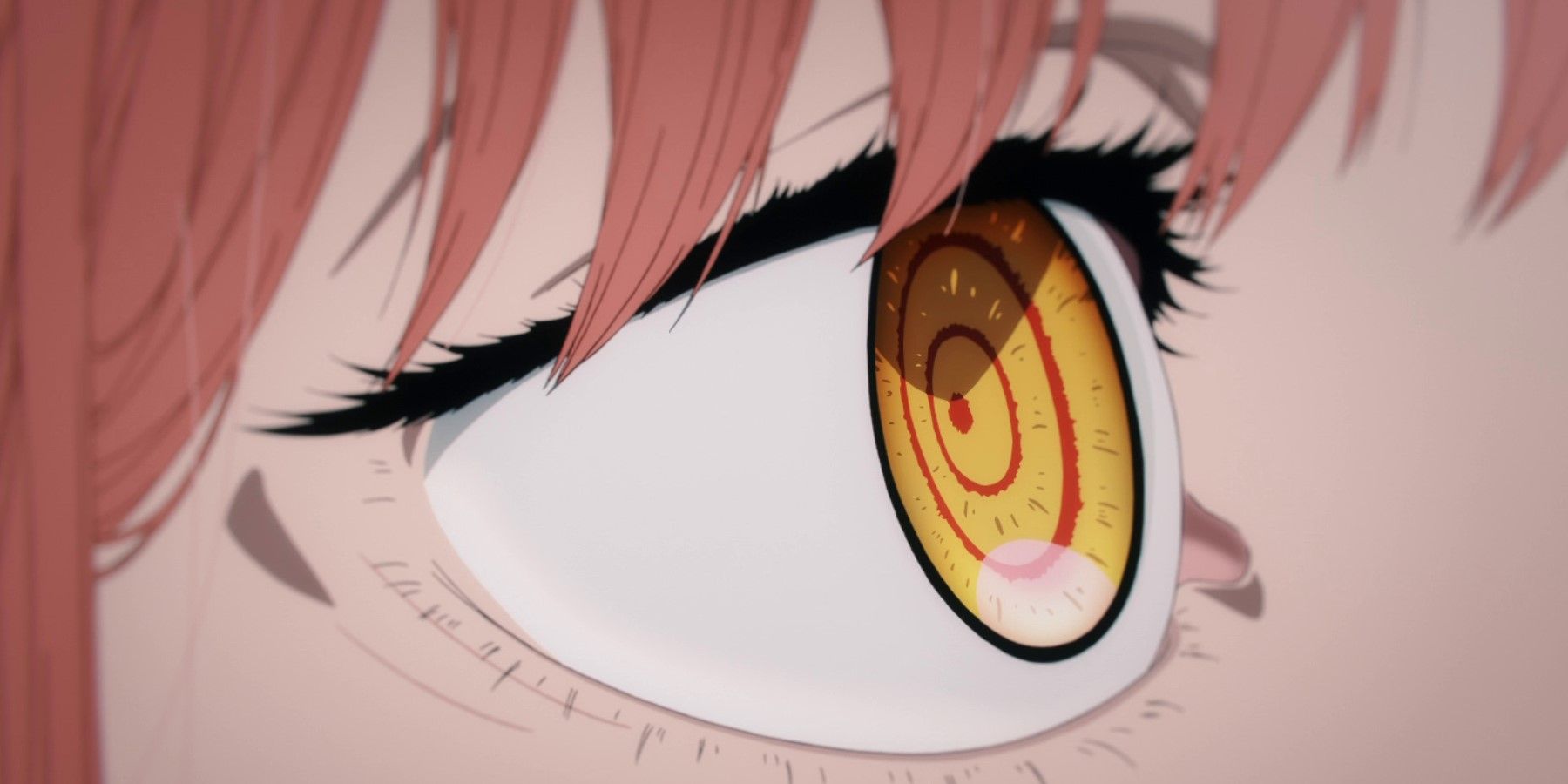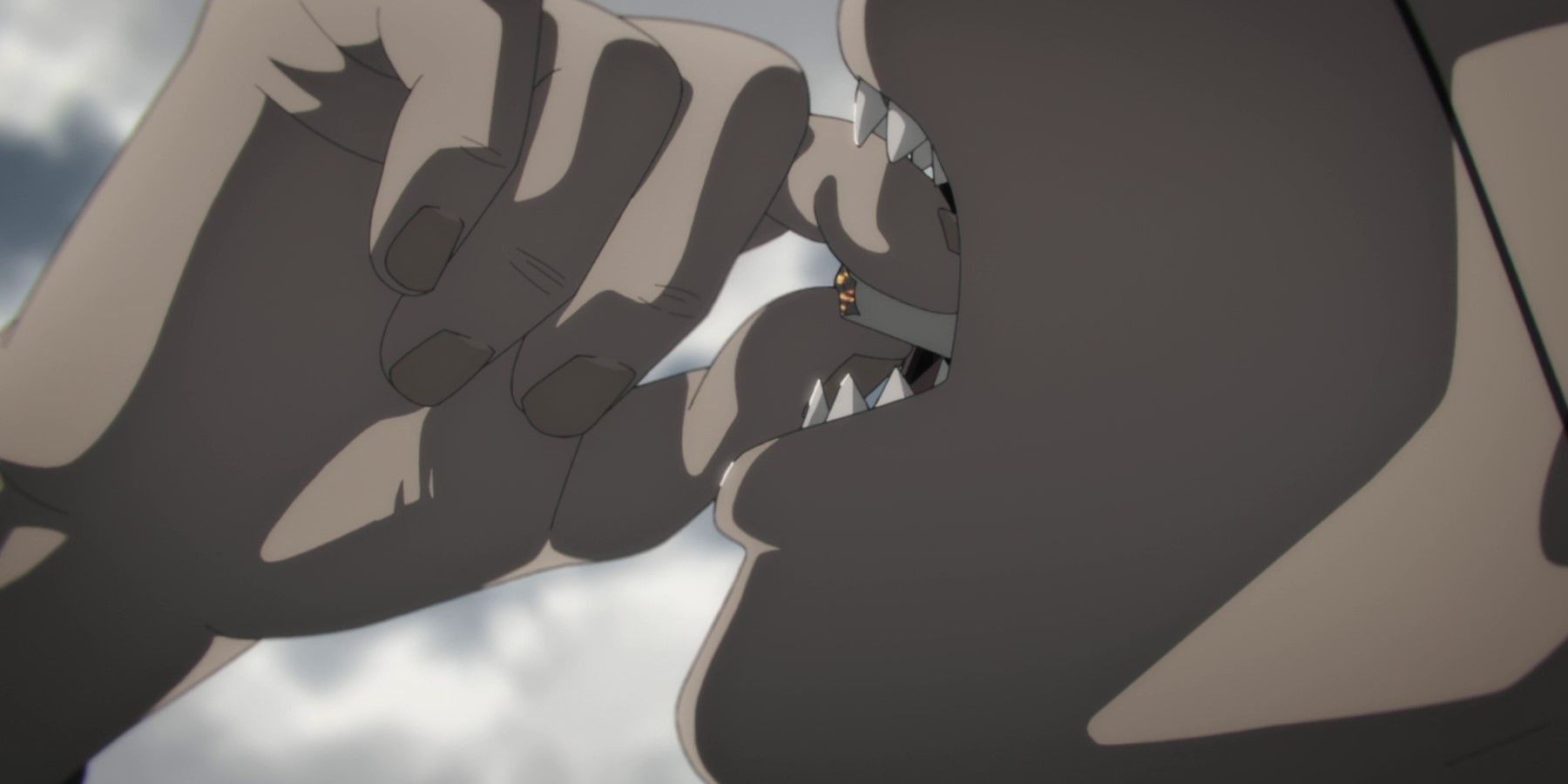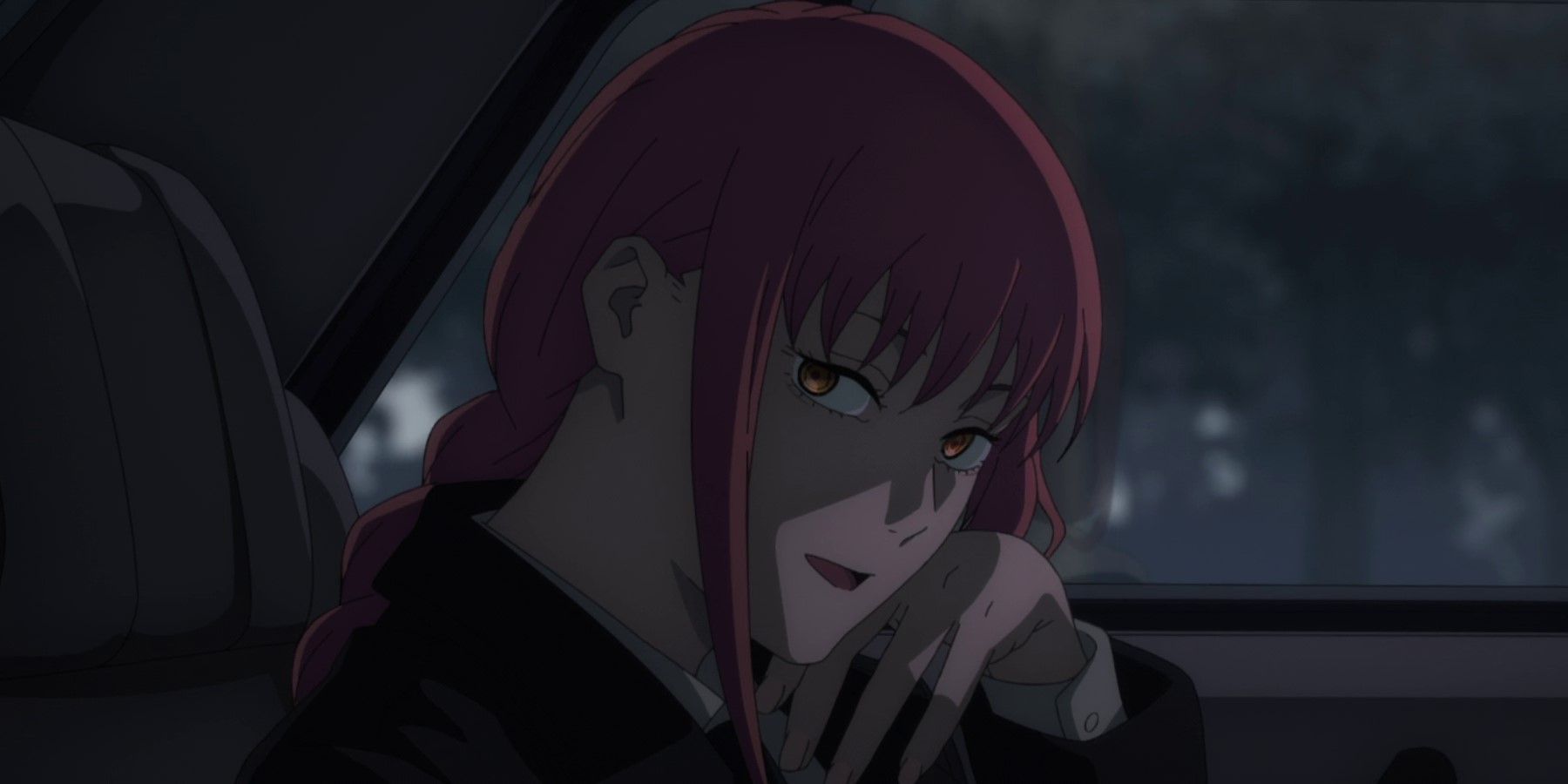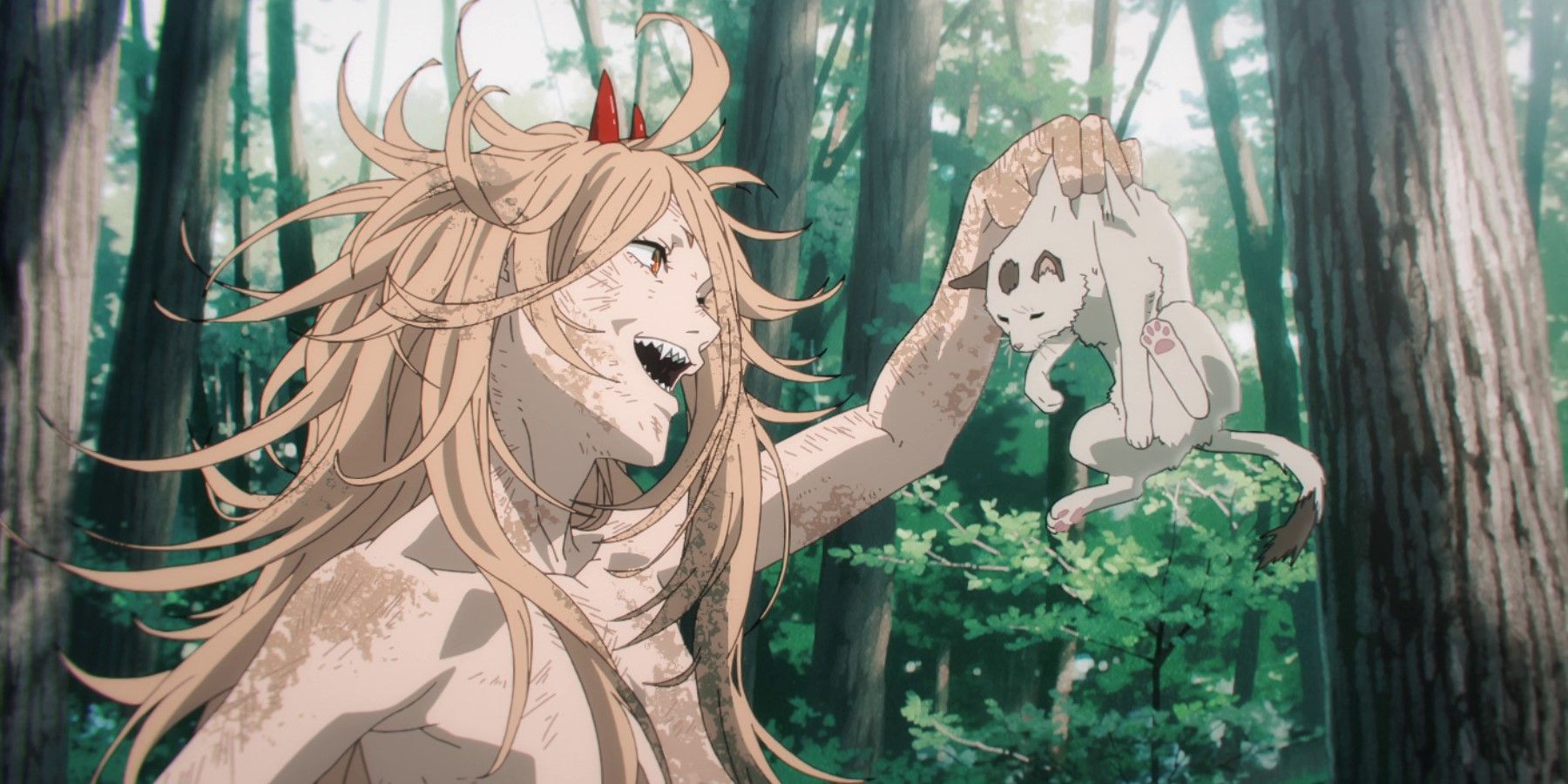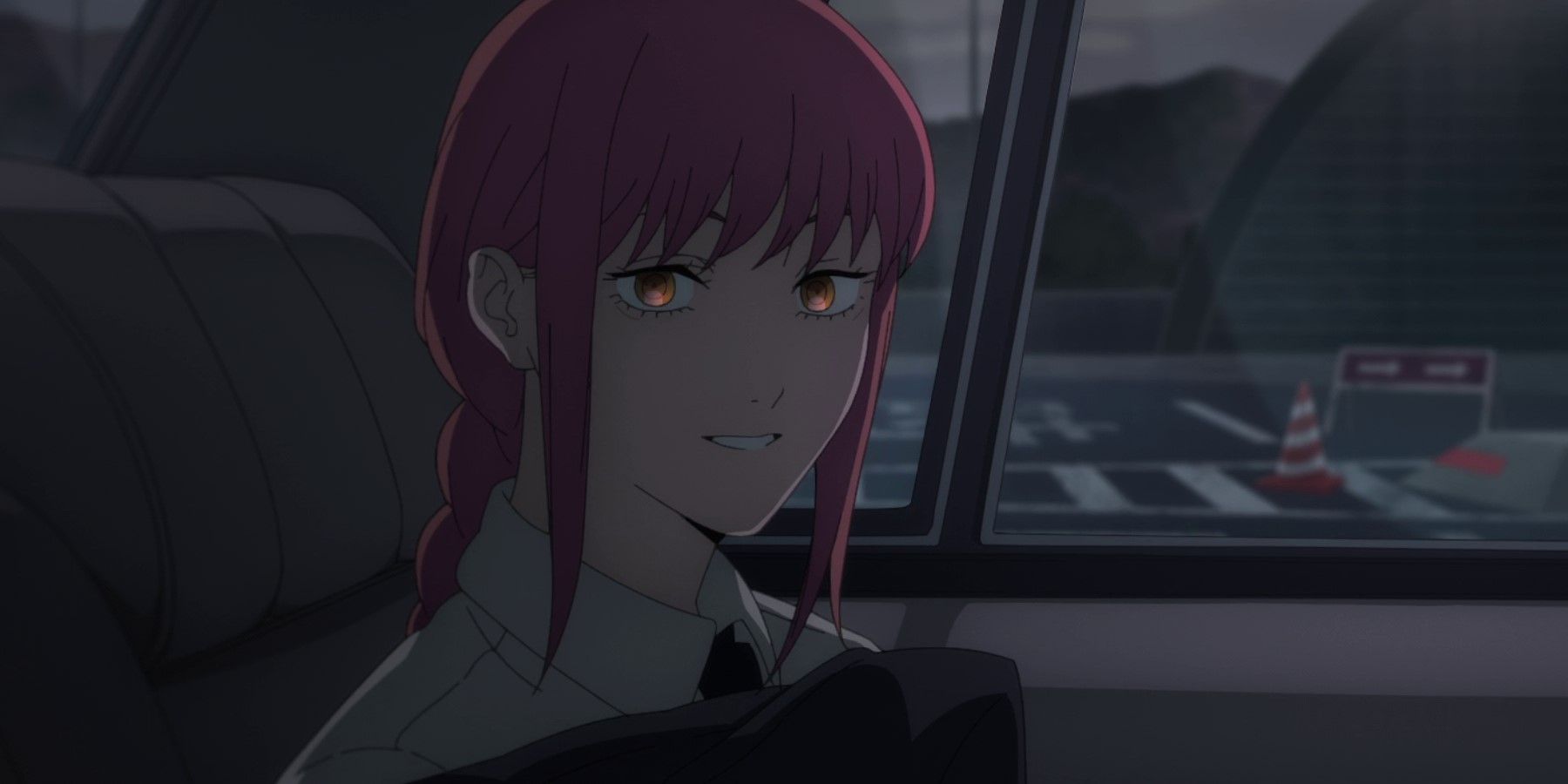CHAINSAW MAN made its official premiere last week, on Tuesday, October 11, and has since been making waves across the anime community, trending on social media and even inspiring fun collaborations with other anime and manga series.
One of the series' most popular characters is Makima, the alluring Devil Hunter who brings Denji into the Public Safety Bureau as a Devil Hunter. Her impact on the narrative, as well as the variety of themes presented by the series and developed through the character, are particularly brilliant. Here's how the translation in the Japanese subbed version has an interesting effect on the portrayal of Makima's relationship with Denji.
Dog Denji
The first episode's exploration into Denji's past and the helplessness of his situation, as well as the exploitation he experienced under the Yakuza group to which his father owed money. Their leader described Denji as a "loyal dog", adding that he does what he is told, no questions asked. After he defeats the Tomato Devil, the Yakuza leader tells him to be on standby for future Devil Hunting jobs, adding that Denji has been a good dog for them. Denji goes home for the day, and the bitter hopelessness of his reality is slowly revealed to the audience. The Yakuza leader's driver is more evidence of Denji's poor treatment under the Yakuza, and he sadistically offers Denji 100 yen to eat his burning cigarette. Denji gleefully does so without a lick of shame, further enforcing the dog metaphor with Denji's character.
Later that night, Denji receives a summons from the Yakuza leader, who takes him to an abandoned warehouse, where Denji is meant to take down the Zombie Devil. However, the Yakuza is soon revealed to have formed a contract with this Devil, and will now dispose of Denji as per the Zombie Devil's orders. The old man tells Denji that he has been a loyal dog who works for cheap like one too; however, he simply can't stand the smell of dogs, in a sense. The old man's consistent reiteration of Denji's disposability ("If you run, I'll turn you into pig slop") culminates in his ultimate abandonment of Denji in favour of a Devil's power. Denji, having lost his father at a young age; not to mention that his father wasn't a good one to begin with, never had an authority figure in his life treat him with any level of compassion, respect or anything less than a detached, abusive and exploitative manner. He lives the life of a stray dog, doing whatever it can to survive and still succumbing to its circumstances regardless. Denji's character and behaviour being associated with the dog motif is also evident in his pursuit of the fulfillment of his basal urges and his completion of any task when presented with a fitting treat – in CHAINSAW MAN episode 3, the treat dangled in front of Denji is a chance to touch Power's chest.
The (Nice) Pet Handler
When Makima finds Denji, she gives him a difficult choice which isn't really much of a choice. However, to Denji, she is his saviour who will give him good food to eat if he works hard for her. It isn't very different from the kind of relationship he had with the Yakuza; however, he is simply not in the position to understand this, having experienced an extreme set of hardships, and little to no affection or positive human contact. In their car ride on their way back, Denji's stomach growls, and he tells her that he's hungry. She asks for his name and then lays down the rules: since he is in her care from here on out, the only responses she wants to hear from him are "woof", or "yes", because he is her dog, further adding that useless dogs get "put down".
Denji's instability is made apparent as his opinion of Makima changes a few times – at first, he thought she was nice, but after her dog comment, he finds her scary; however, soon after that, Makima offers to pay for his breakfast and offers him her coat, so he can cover up his torso and just like that, she's a good person, and he loves her. Right after handing over the coat, the shot of Makima's vacant expression as she looks out the window while Denji waxes lyrical about her in his head creates an unsettling disconnection between her and her acts of kindness, and her lifeless eyes are regularly made the focus of various shots as if the audience is compelled to look her dead in the eye and experience the unsettling sensations that emerge.
In the first episode when Denji has his head laid on Makima's lap, she says "Akuma toshite watashi ni korosareru ka?..." (Would you rather die as a Devil...), "hito toshite watashi ni kawareru ka?" (or rather be taken in by me as a human). She follows this by adding "Kau nara, chanto esa wa ageru yo" (If the latter, I will make sure there's plenty of feed). The translations used in subtitles retain a necessary level of ambiguity; however, Makima establishes her perspective very early on: she is able to recognise a human, and even take care of one, but there is an eerie sense of superiority Makima establishes with her choice of words.
Denji is human, but he is still a dog. The authority in Denji's life may have changed, but authority's relationship to Denji has not. Makima's use of language, while translating to exactly what Denji wants and needs, is particularly heinous because she uses words that are only applicable when talking about animals. Makima also claims to have a strong sense of smell, and she uses it upon finding Denji to give credence to the fact that he isn't simply possessed.
The Stray Cat
The pet metaphor in CHAINSAW MAN used largely in Denji's character also applies heavily to Power, who is introduced in the second episode. Right after her introduction to Denji towards the end of episode 2, Makima explains the reasons for his and Power's enlistment into the experimental Public Safety Devil Extermination Special Division 4, which is on the verge of dissolution if they cannot yield results.
Power is a Fiend, much like Denji, who was once known as the Blood Devil and Makima reminds them that like regular Devils, Fiends are also designated for immediate elimination; however she cites Power's high rationality for her inclusion (which is important to note in the context of Makima being able to quickly understand Denji's needs). In episode 3 of CHAINSAW MAN, after the huge mess made by Power's decimation of the Sea Cucumber Devil, Makima again uses her authority to scold them, threatening Power covertly by suggesting that she may not be cut out for hunting Devils in the first place, which prompts Power to blame it all on Denji, essentially making the claim that he, like all the other humans, is a huge liar.
As mentioned before, Power also experiences characterization in relation to an animal metaphor, with her characteristic animal being the cat. She is extremely enamored by cats, and seems to feel kinship with stray cats in particular, having adopted one soon after her arrival. Power says it herself – she only enjoys the company of cats and absolutely hates humans and Devils alike, the latter due to a Devil taking her pet cat away from her. Throughout episode 3, Power expresses her hatred for humans and various context clues regarding her love for cats are given before she tells Denji her story. Denji and Power being juxtaposed as clear opposites is strengthened by both characters' association with the domesticated cat/dog is also evident in their actions – Power running off to defeat the Sea Cucumber Devil and causing a major commotion despite having to stay low-key; her subsequent pointless but pragmatic attempt to shift blame onto Denji; and the plan she devised to use Denji are all evidence of Power's cat-like character.
With Power, extreme independence, rationality (not intelligence) and well, power, are meant to be strong associations; however, Makima seems to have a huge effect on these attributes, as the loud-and-proud Power shrinks in the presence of her handler. Episode 3 ends with Power and Denji having established a level of mutual understanding as pet owners who have only experienced genuine affection through their animal companions and subsequently had them taken away. When the Bat Devil deceives Power and eats her cat anyway, the feeling of loss paralyzes her completely as she comes to understand how Denji feels about Pochita's loss.
The Collar and the Leash
When talking to Denji, Makima uses verbs like kawareru (potential form of the verb kau – to adopt/take in [an animal]) and "esa" (literally "feed"; as in for domesticated animals, or those in captivity). Makima very clearly acknowledges Denji's humanity as she mentions the fact that he is a person a few times in their initial meeting, but she also seems to understand that humanity or personhood as beneath her, as she is able to adopt such a being as her pet. In the VIZ translation of the CHAINSAW MAN manga, Makima outright tells Denji that he could either die as a devil, or be "kept" by her as a human pet, which is very interesting especially in how the sinister aspects to Makima's personality are very apparent in her choice of language.
It adds a layer to her interaction with Denji, but also forms a parallel regarding Denji's relationship with authority figures in his life. Having been subject to horrible treatment his whole life, Denji moves on very quickly from Makima's interesting choice of words, as the prospect of having breakfast to eat every morning proves to be a dream come true for him. Bedazzled shackles are still shackles; however.


